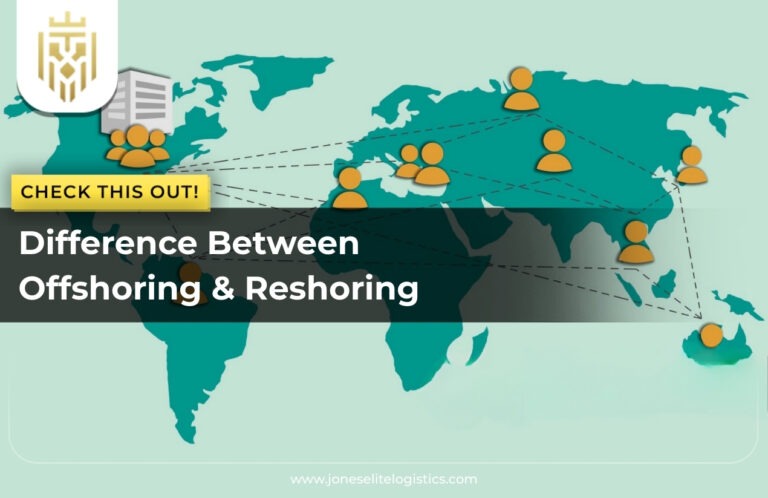What is Lean Supply Chain Management?
Lean Supply Chain Management is a technique used for improving efficiency and reducing waste in supply chain management. It is established in the attainment of superior value for the customer by enhancing organization processes and possessing low inventory and better product flow. Lean management concepts are used to find out and remove waste so that efficiency and customer satisfaction can be achieved.s are used to find out and remove waste so that efficiency and customer satisfaction can be achieved.

Why should you implement Lean Management into your supply chain?
It is important to note that Lean Management in the context of supply chain management can be beneficial owing to aspects like cost efficiency, effectiveness, product quality, and effectiveness in meeting customers’ demands. In this case, wastes are cut and processes are improved to increase delivery speeds and reduce the cost of stocks while increasing flexibility in the face of change.
5 Principles of Lean Supply Chain Management :
We shall go through the five principles that form and hold the lean supply chain management:
Identifying Value:
Defining value requires the understanding of what the customer requires and/or finds useful. This step is very important in creating awareness of the flow of organizational productivity so that efforts can be given to only those activities that can directly improve the satisfaction of customers. This is the cornerstone of Lean principles as all the supply chain activities focus on the creation of maximum value.
Mapping the stream:
Value stream mapping entails the identification of all the process activities that occur in the supply chain from the actual supply of raw materials to the finishing of the final product. This assists in defining activities that do not add any value, vectors of delays, and areas of poor organization of work. This way, companies that map the entire process can realize where the improvements should be made.
Creating Flow:
The concept of flow therefore makes a virtue out of speed, making certain that products and information flow from one junction to another, without any disruption. This ranges from eradicating constraints, decreasing lead time, and enhancing synchronization of all operations. To state production in simple but profound terms- minimize clogs and maximize the stream.

Using Pull:
In entailing the pull concept, one makes products based on the demand rather than making projections of the same. This cuts wastage and individuals using resources in improper proportions which in turn leads to the accumulation of large stock or products. Pull systems are aligned with the changing needs of the customers and are more effective than push systems as they do not incorporate waste.
Pursuing Perfection:
Perfectionism entails a constant endeavor towards the attainment of optimum efficiency and eradication of any waste. This one fosters the attitude of continuous improvement, under which everyone, even low-ranking workers, contemplates how to increase performance, quality, and customer satisfaction. It is a management philosophy that focuses on the desire to deliver the best in all areas of supply chain processes.
Elements of Lean Supply Chain Management:
Lean Supply Chain Management has several components that are combined to achieve the ultimate objectives of shipping and supply chain. Some of these elements are integration, operations, purchasing and procurement, and distribution and logistics. All are critical in the integration of an agile and efficient supply chain.
Integration:
Integration entails proper coupling of all the chains of supply in a way that all the supply chain members are guided by one goal in carrying out their tasks. The strategic application of TM and SCM leads to changes in communication and, correspondingly, the collaboration and positioning of the entities, which in turn results in overall supply chain effectiveness and organizational performance.
Operations:
Operation refers to tasks or processes that are performed to create value in the form of goods and services. Lean operations refer to the processes that are aimed at rationalizing the processes of work delivery, cutting on excessive production, and increasing efficiency. This entails refining the overall production plan, avoiding idle time, and making sure that sub-processes are done well.

Purchasing and Procurement:
The activities that occur before production include buying and acquiring all the raw materials and other ingredients used in production known as purchasing and procurement. In this area, lean principles are directed toward developing quality and long-term supplier partnerships, decreasing the time between orders placed and received, and effectively acquiring appropriate materials in an economical and timely manner.
Distribution and Logistics:
The idea of distribution and logistics can be defined as the actual physical flow as well as the positioning of the products from the manufacturing company to the final consumer. Lean distribution is interested in cutting handling and transport costs, and getting products to where they are needed when they are needed. Both organizational customers, as well as final consumers, are positively impacted because an effective supply chain management system lowers the general costs of doing business.
Role of Technology in Lean Supply Chain Management:
The applied use of technology can be seen to provide support to Lean Supply Chain Management by increasing the rate of possibility, precision, and agility. AI, machine learning, mobile inventory solutions, and data analysis tools are used to pinpoint inefficiencies, suggest opportunities for improvement, and view results in real time making it easier to keep improving and reducing waste.
AI and Machine Learning Impact:
The use of AI and machine learning in supply chains affects Lean Supply Chain Management in ways such as demand forecasting, route optimization, and automation of mundane tasks. These technologies are applied to analyze huge volumes and varieties of data for pattern recognition and predictive actions. This results in the optimization of the systems and, therefore, brings about a decrease in wastage.
Mobile Inventory Management Solutions:
The great benefit that is added to Lean supply chains by mobile inventory management solutions is that stocks can be monitored efficiently. These solutions support fast scanning, tracking, and, updating of the inventory data, thus minimizing errors. They also approve just-in-time stock acquisition, which means that the supply of consumables is done only when the organization is running low.

Data Analytics Integration:
The incorporation of data analytics enables a firm to make analysis outcomes of big data sets with the intention of identifying the outcomes of the supply chain. Thus, it assists in managing and escalating ideas of how to minimize and enhance such ineffective and inefficient procedures while forecasting the future rates of requirement. The use of data analysis enables the improvement of the decision-making process, brings issues of transparency, and optimizes Lean supply chain management.
Features of Lean Supply Chain Vs Conventional Supply Chain:
It is a managerial philosophy that aims at the reduction of waste, elimination of overburdens, and fast supply of goods to the customers. They have adopted aspects such just in in-time inventory, reduction of cycle time, and standardized work. Conventional supply chains may be characterized by instability, excess inventories, long lead times, and little focus on minimizing waste hence being more costly and less flexible.
Benefits of Lean Supply Chain Management:
The advantages of Lean Supply Chain Management include; customer satisfaction, elimination of operation unnecessary, less inventory expenses, and quality. Lean supply chains therefore obtain greater levels of efficiency and response by concentrating on value creation and eradicating non-value-added activities.
Improve Customer Service:
A lean supply chain management enhances organizational competence by increasing the efficiency of service delivery thus delivering the products on time, lowering the lead time, and increasing the quality of the products. The two perspectives that support value creation and efficiency make it possible for companies to satisfy the demands of their customers in the best way and most consistently thus raising the prospect of high customer satisfaction.

Streamline Your Process:
Efficiency in Lean Supply Chain Management entails defining and eradicating wasted activities, improving the flow of materials and information, and improving supply chain competencies among the chain’s members. This leads to quicker system processing and minimized downtime, overall the performance of a supply chain system is enhanced and becomes more adaptive.
Reduce Waste:
Minimizing waste constitutes a significant policy of Lean Supply Chain Management. The use of lean production avoids these unsatisfactory situations since it can focus on reducing every activity that is considered nonessential. This result leads to cost reduction as well as optimal utilization of resources in organizations Therefore, it can be concluded that the use of e-procurement systems reduces costs as well as optimizes the use of resources in organizations.
Lower Inventory Costs:
Lean Supply Chain Management also leads to a reduced cost in inventory by adopting just in just-in-time principle and cutting on excess stocks. This is because it cuts expenses incurred on storage, inventory holds risks of obsolete products, and enhances the cash turnover. Lean principles guarantee that there are optimum levels of inventory for a company to hold thus improving the efficiency.
Enhanced Quality:
Lean Supply Chain Management is about delivering superior quality that is created by continuously improving the processes and eliminating waste. Lean supply chains for example focus on value-added activities and the eradication of defects in a bid to offer better quality products. This results in better customer satisfaction, fewer returns, and thus a better brand image.
FAQs
1) What is Lean Supply Chain Management?
Lean Supply Chain Management is directed towards the supply chain effectiveness which is aimed at making it free from wastes and unnecessary steps. It focuses on the achievement of the maximum levels of customer satisfaction through enhancement of product flow and reduction of inventory.
2) What are the 5 lean management principles?
The five lean management principles include identifying value within a process, mapping the value stream, creating flow, using the pull system, and seeking to realize perfection.
3) What are the benefits of Lean Supply Chain Management?
The effectiveness of Lean Supply Chain Management comprises enhanced customer service, process efficiency, elimination of excess costs, and enhanced product quality.
4) What are the Elements of Lean Supply Chain Management?
Subcategories of Lean Supply Chain Management are integration, operations, purchasing/procurement, and distribution/logistics.









